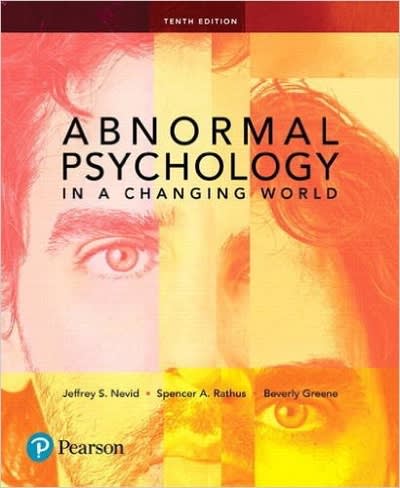Do people who are obviously mentally disturbed have the right to refuse treatment? The case of Larry
Question:
• Do people who are obviously mentally disturbed have the right to refuse treatment? The case of Larry Hogue touches on the problem of how society deals with the psychiatric homeless population. We first learned about Hogue—the “wild man of West 96th Street”—back in the early 1990s. Hogue was a homeless Vietnam War veteran who inhabited the alleyways and doorways of Manhattan’s affluent Upper West Side. He went barefoot in winter, ate from garbage cans, and muttered to himself. He was described in newspaper reports as terrorizing the neighborhood, becoming especially violent when he smoked crack. Once, he was arrested for pushing a schoolgirl in front of a school bus (Shapiro, 1992).
(Miraculously, she escaped injury.)
Hogue was shuttled in and out of state psychiatric hospitals and prisons more than 40 times. He popped up in the news again in 2009, having escaped from a Queens mental hospital and made his way back to West 96th Street in Manhattan, again frightening residents by his mere presence.
As one resident told a reporter, “People called each other . . . saying, ‘He’s back.’ Nobody, after 17 years, had to ask who” (“Wild Man,” 2009).
Step by Step Answer:

Abnormal Psychology In A Changing World
ISBN: 9780134484921
10th Edition
Authors: Jeffrey S Nevid, Jeffrey S Nevid PhD, Spencer A Rathus, Beverly Greene, Beverly Greene PhD






